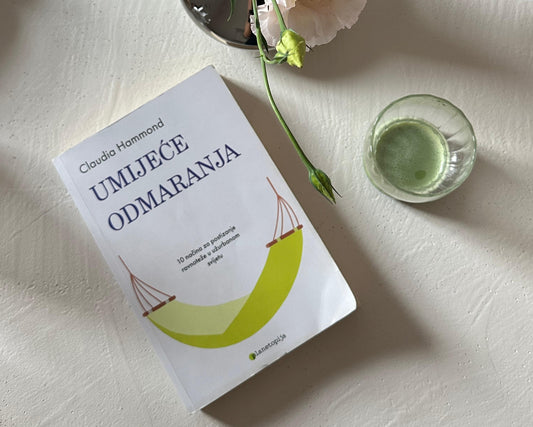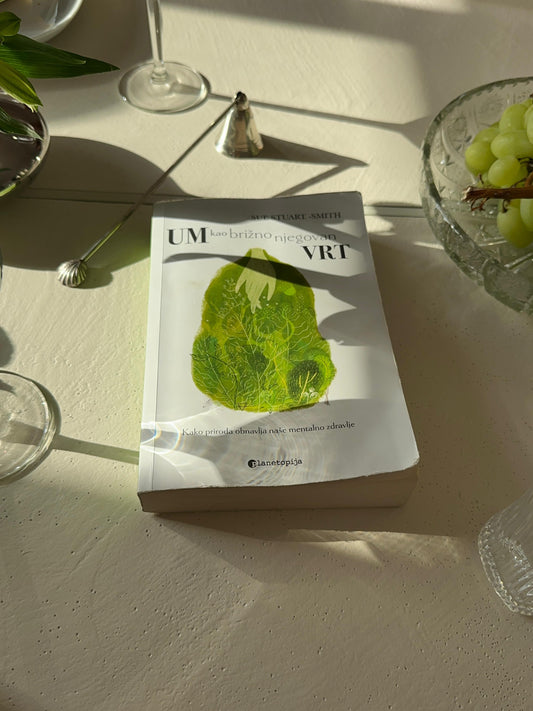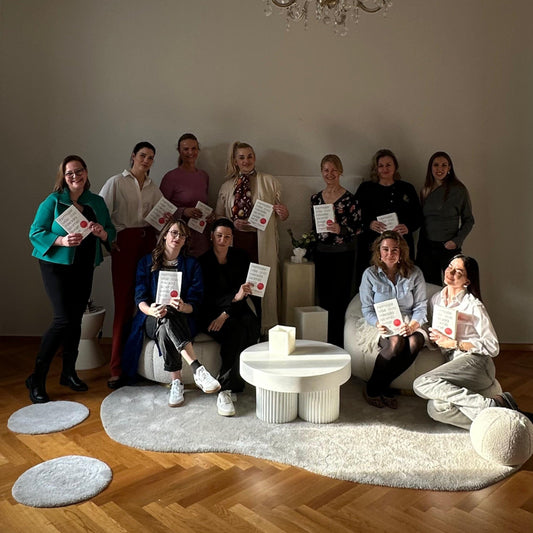Socrates Express: How to Live Wiser
What the book The Socrates Express teaches us – and why ancient philosophers might be the only influencers worth following
These days everyone talks and few truly listen. That is why it is becoming harder to separate what matters from what is merely loud. We wake up by scrolling, we fall asleep with screens, and in-between we rarely spend a single moment alone with ourselves – without stimuli, instructions or noise.
In May, the Materia Book Club read The Socrates Express, and although we did not find ready-made answers, we did find something more important: better questions.
In the book, American writer and former New York Times journalist Eric Weiner boards trains around the world in search of philosophers who asked precisely the question “How?”. Through their ideas he tries to give an answer that is more than a slogan. Every chapter carries a title that is also an invitation to shift perspective: How to wake up like Marcus Aurelius, walk like Rousseau, fight like Gandhi, pay attention like Simone Weil, grow old like Simone de Beauvoir…

Why trains – and philosophy – slow down the time that keeps slipping away
Weiner’s vehicle of choice is not the airplane, the car or a metaphorical “inner journey”. He chooses the train: tangible, slow and a little old-fashioned, just like philosophy. He moves along tracks that belong more to a stretchable, almost meditative dimension than to a timetable. A train allows for waiting, lingering, unpredictability. We are neither isolated nor exposed. Much like philosophy, the train does not dictate tempo – it invites us to travel with it on terms we set ourselves.
The author also pays special attention to railway stations. They are, he says, always full of life and perfect for philosophising, unlike other crowded places. A station is a point of arrivals and departures, yet it grants a traveller the time – if she allows it – to think.
Stations, like philosophy, often look irrelevant when we are in a hurry, but once we become curious about life again and pause, they rekindle that spark of attention, will and vitality we did not even know we lacked.
Finding a pocket of freedom in everyday life
The book confronts us with questions about habits, patterns and the direction of life. They cut through the daily routine and deliver an uncomfortable but necessary diagnosis: we may know what we are doing, but that does not mean we know how we are living.
“People are like a barrel rolling downhill,” Weiner writes, paraphrasing Marcus Aurelius. “Everyone will reach the valley – that is certain. Whether the journey is rough or smooth depends on them.”
There is no way to halt the flow of time. No way to shield ourselves completely from the rises and falls that await us. Yet the manner in which we cope with that movement – our own rhythm, reactions, gaze – that is the space of freedom. That is where philosophy goes to work, and where the book offers concrete ideas from thinkers who lived through what we are living through, however many centuries apart.
Happiness is not a goal but a by-product
Regardless of circumstance we all seek the same things: meaning, peace, the feeling that soul and day are aligned. In a schedule crammed with obligations we sense one ultimate task, usually neglected: to decide – and then live – what a good life means for us. And what, in fact, is happiness?
Happiness, Weiner says, is not a destination. It cannot be planned, produced or earned. It is a by-product, an unexpected bonus of a well-lived life. It arrives not when we summon it, but when we create the conditions in which it can appear: when we stop measuring days by achievements, when we seek not more but deeper, when we stop pushing and start allowing.

Attention as a new form of love – and resistance to fragmentation
Weiner does not frame attention in terms of productivity or digital detox. He speaks of attention as the foundation of our relationship with the world – the inner “yes” we utter when we truly notice things. Attention is the way we approach the world. When we truly see something, unhurried and without the urge to exploit or interpret it instantly, both the object of our gaze and our way of being are transformed. Attention is the antidote to everything that fragments us today: information, distractions, notifications, comparisons. It restores wholeness.
It does not help us know more, but helps us see deeper – to sense what is truly important, no matter how inconspicuous or “unproductive” it looks.
Quest for meaning is not a project – it is lived
Throughout the book Weiner’s tone is unobtrusive, yet clear: meaning will not be found by chasing it as a project. It arrives when we relinquish total control and begin to live more consciously through what is already available.
No wonder one of the strongest chapters invokes Schopenhauer’s idea of the Will – a blind, relentless urge for more, eerily similar to the modern internet. Algorithms, like the Will, recognise no end; they only want more attention, more clicks, more content – and they devour our most precious resource: time.
Weiner is not railing against technology; he is warning against the state technology often sustains – unconscious living. A world that demands nothing but reaction from us instead of choice. Philosophy urges us to choose again: where we look, what we nurture, how we act, how we live.

Pleasure is not wrong – our definition is
Weiner notes that the mistake of the modern world is not that we seek pleasure, but that we define it poorly. We assume more variety means more delight, yet variety is not depth. We find ourselves with more options than ever and fewer true enjoyments. Overload is not wealth; on the contrary, it estranges us from the world and from ourselves.
We need not conquer the world – we must learn to see it
The world is not a blank canvas we must incessantly paint with novelty. It is enough that we are alive. We should approach the world not to conquer but to truly see it. Philosophy in practice is less a set of abstract concepts than a fine adjustment of focus. The quality of our attention shapes the quality of our life. What we look at, and how we look, ultimately shapes who we become.
“Our lives are, no more and no less, the sum of the moments when we were most fully awake.”
The Socrates Express does not teach how to live in ten steps, nor does it sell the illusion of constant clarity. Instead, it returns philosophy to its rightful place: everyday life. To wake up is not automatic. To walk that keeps a rhythm. To conversation that does not rush. To ageing that we do not experience as a threat but as a field of learning.
A book you do not shelve – but carry
That is why the book was, for many members of the Materia Book Club, not something we “finished and stored”, but something we now carry with us. Its strength lies not in spectacular ideas but in a calm determination to remind us: meaning does not come from outside. It comes from attention, from questions, from our willingness to pause and listen to where we truly wish to go.










